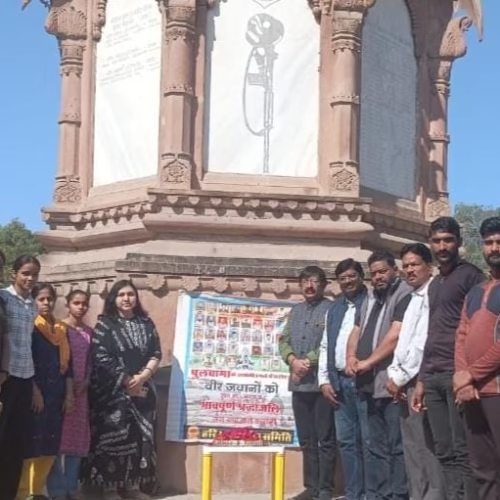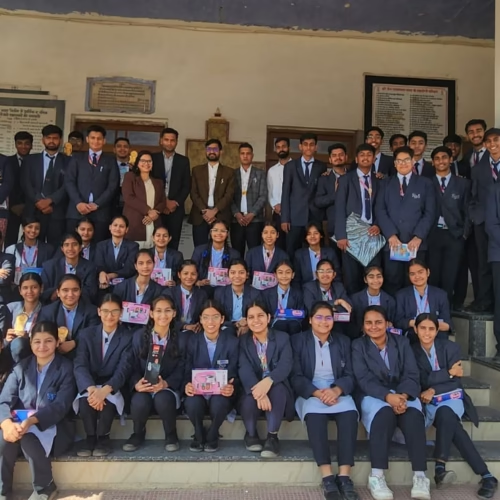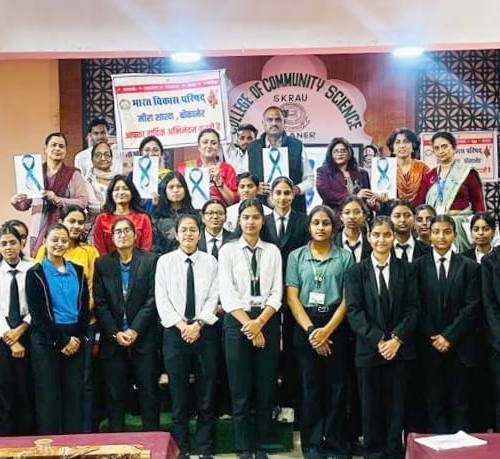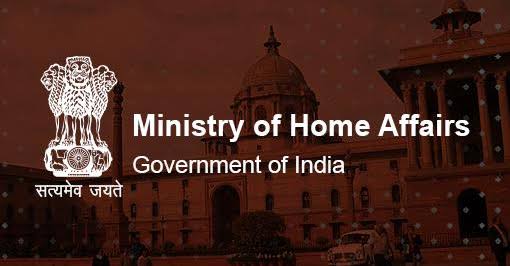BY DEFENCE JOURNALIST SAHIL | T.I.N. NETWORK
रहस्यमयी मौत, राजनयिक साज़िश और एशिया में बढ़ता तनाव: ढाका में अमेरिकी अधिकारी की मृत्यु के पीछे क्या छिपा है?
नई दिल्ली | वॉशिंगटन | ढाका | अक्टूबर 2025 —
दक्षिण एशिया का कूटनीतिक संतुलन इन दिनों जिस दिशा में झुक रहा है, उसने पूरी दुनिया का ध्यान अपनी ओर खींच लिया है। ढाका के एक लग्ज़री होटल में अमेरिकी स्पेशल फोर्स अधिकारी टेरेंस आर्वेल जैक्सन (Terrence Arvelle Jackson) की रहस्यमयी मौत ने न केवल बांग्लादेश की अंतरिम सरकार को असहज कर दिया है, बल्कि इसने भारत, रूस, अमेरिका और चीन—चारों प्रमुख शक्तियों के बीच चल रहे अदृश्य युद्ध को भी उजागर कर दिया है।
मामला इतना गूढ़ और बहुस्तरीय है कि इसके धागे शंघाई सहयोग संगठन (SCO) शिखर सम्मेलन से लेकर प्रधानमंत्री नरेंद्र मोदी और रूस के राष्ट्रपति व्लादिमीर पुतिन की निजी बातचीत तक फैले दिखाई देते हैं। कई खुफिया सूत्र इसे “21वीं सदी की नई जासूसी कूटनीति” का सबसे बड़ा उदाहरण बता रहे हैं।
गोपनीय मुलाकात: पुतिन और मोदी की रहस्यमयी बातचीत
रिपोर्टों के अनुसार, एससीओ शिखर सम्मेलन के दौरान राष्ट्रपति पुतिन ने प्रधानमंत्री मोदी से एक “अनिर्धारित निजी बैठक” का अनुरोध किया था। इस मुलाकात को सार्वजनिक एजेंडे में शामिल नहीं किया गया, परन्तु अंदरूनी सूत्रों का कहना है कि इस बैठक में क्षेत्रीय सुरक्षा, गुप्त अभियानों और भारत की नेतृत्व-स्तर पर संभावित खतरों पर चर्चा हुई।
सबसे दिलचस्प पहलू यह रहा कि बातचीत के बाद राष्ट्रपति पुतिन ने प्रधानमंत्री मोदी को अपने निजी वाहन में सवारी करने का आमंत्रण दिया — एक ऐसा कदम जो रूस-भारत विश्वास के प्रतीक के साथ-साथ सुरक्षा संदेश का संकेत भी माना जा रहा है। मॉस्को के कूटनीतिक हलकों में इसे एक “गोपनीय सहयोग का इशारा” कहा जा रहा है, जो यह बताता है कि रूस, भारत के स्वतंत्र विदेश नीति रुख के प्रति सम्मान और समर्थन रखता है, भले ही इससे पश्चिमी जगत असहज क्यों न हो।
ढाका में मौत: क्या यह सामान्य हत्या थी या साज़िश का हिस्सा?
जैसे ही यह सम्मेलन समाप्त हुआ, कुछ ही घंटों बाद ढाका से खबर आई कि अमेरिकी विशेष बल अधिकारी टेरेंस जैक्सन अपने होटल के कमरे में मृत पाए गए। शुरुआती रिपोर्टों में “अनजान हमलावरों” की बात कही गई, लेकिन जल्द ही ढाका के राजनीतिक गलियारों से यह लीक हुआ कि जैक्सन की उपस्थिति और गतिविधियाँ किसी बड़े अमेरिकी मिशन से जुड़ी थीं।
स्थानीय सूत्रों का दावा है कि जैक्सन बांग्लादेश की अंतरिम सरकार, जो इस समय नोबेल विजेता अर्थशास्त्री मुहम्मद यूनुस के नेतृत्व में है, के साथ गुप्त वार्ताओं में संलग्न थे। इन वार्ताओं का उद्देश्य था — बंगाल की खाड़ी के महत्वपूर्ण द्वीप सेंट मार्टिन पर अमेरिकी निगरानी या आंशिक नियंत्रण की अनुमति प्राप्त करना।
सेंट मार्टिन द्वीप, भारत और चीन की समुद्री रेखाओं के बेहद समीप स्थित है और इस क्षेत्र की सामरिक भू-राजनीति में इसका अत्यधिक महत्व है। विशेषज्ञों का मानना है कि यदि अमेरिका को यहां उपस्थिति मिलती, तो यह पूरे हिंद-प्रशांत क्षेत्र की शक्ति-संतुलन को बदल सकता था।
रेडियोधर्मी जहर की कहानी: पोलोनियम का सुराग
ढाका की जांच एजेंसियों से जुड़े कुछ सूत्रों ने खुलासा किया है कि प्रारंभिक टॉक्सिकोलॉजी रिपोर्ट में “पोलोनियम” नामक रेडियोधर्मी तत्व के निशान पाए गए हैं। यह वही पदार्थ है जिससे रूस के पूर्व जासूस अलेक्जेंडर लिटविनेंको की हत्या 2006 में की गई थी।
यदि यह पुष्टि होती है, तो यह स्पष्ट संकेत है कि हत्या किसी साधारण अपराधी द्वारा नहीं, बल्कि एक “राज्य समर्थित एजेंसी” द्वारा अंजाम दी गई। पोलोनियम तक पहुंच केवल उच्चस्तरीय परमाणु अनुसंधान प्रतिष्ठानों या सरकारी खुफिया नेटवर्क के पास होती है।
सूत्रों का कहना है कि हत्या संभवतः एक नाइटक्लब में हुई, जहां जैक्सन को एक “स्पाइक्ड ड्रिंक” दी गई। ढाका की राष्ट्रीय सुरक्षा खुफिया (NSI) में यह भी अटकलें हैं कि यूनुस सरकार के विरोधी गुटों ने किसी विदेशी एजेंसी के साथ मिलकर यह कार्रवाई की और भुगतान क्रिप्टोकरेंसी में हुआ।
भारत की खामोश प्रतिक्रिया: मोदी का रहस्यमयी बयान
प्रधानमंत्री नरेंद्र मोदी जब सम्मेलन से लौटे, तो पत्रकारों के सामने उनका एक वाक्य — “क्या आप ताली इसलिए बजा रहे हैं क्योंकि मैं लौट आया?” — पूरे कूटनीतिक समुदाय में चर्चा का विषय बन गया। विशेषज्ञ इसे “संकेतों में चेतावनी” मान रहे हैं कि शायद किसी अंतरराष्ट्रीय साजिश को भारत के खिलाफ रोका गया है।
दिल्ली में प्रधानमंत्री कार्यालय (PMO) और आधिकारिक काफिले की सुरक्षा व्यवस्था अचानक बढ़ा दी गई। सूत्र बताते हैं कि प्रधानमंत्री की सुरक्षा से जुड़ी एजेंसियों ने “असामान्य अलर्ट” जारी किया है, जो कि संभवतः किसी विदेशी गुप्त कार्रवाई की संभावना से जुड़ा था।
अमेरिका की चुप्पी और भारत का रुख
वॉशिंगटन ने अब तक इस घटना को “जांचाधीन त्रासदी” करार दिया है। परंतु अमेरिकी रक्षा विभाग और स्टेट डिपार्टमेंट दोनों ही जैक्सन की यात्रा और मिशन संबंधी विवरण साझा करने से बच रहे हैं। इस रहस्य ने स्थिति को और अधिक संदिग्ध बना दिया है।
विश्लेषकों का कहना है कि भारत के स्वतंत्र विदेश नीति रुख — विशेषकर रूस के साथ उसके मजबूत संबंध और पश्चिमी दबावों को ठुकराने की रणनीति — ने अमेरिकी खेमे में असंतोष पैदा किया है। भारत का एससीओ और ब्रिक्स जैसे बहुध्रुवीय प्लेटफॉर्म में सक्रिय रहना पश्चिमी प्रभाव को चुनौती देता दिख रहा है।
खुफिया तंत्र में हलचल: कौन किसे चेतावनी दे रहा था?
अंदरूनी सूत्रों के मुताबिक, भारत की खुफिया एजेंसी रॉ (R&AW) को किसी “मित्र देश” द्वारा एक संभावित अमेरिकी गुप्त कार्रवाई के बारे में पूर्व चेतावनी मिली थी। यह “मित्र देश” रूस की FSB या चीन की MSS एजेंसी मानी जा रही है।
कथित सूचना में कहा गया था कि अमेरिका की किसी एजेंसी द्वारा भारत की शीर्ष नेतृत्व को “राजनयिक दबाव” के ज़रिए अस्थिर करने की कोशिश की जा सकती है। हालांकि यह स्पष्ट नहीं है कि वह कार्रवाई वास्तव में हुई या रोक दी गई, लेकिन जैक्सन की अचानक मृत्यु ने उस चेतावनी को नया अर्थ दे दिया है।
नई शक्ति-संरचना का संकेत: बदलता एशियाई संतुलन
टेरेंस जैक्सन की रहस्यमयी मौत और उसके चारों ओर फैली जासूसी-जैसी गतिविधियाँ इस बात का संकेत हैं कि एशिया अब नई शक्ति-संरचना के दौर में प्रवेश कर चुका है।
भारत, जो अब न तो पश्चिमी आदेशों का अनुपालन करता है और न ही किसी एक ध्रुव पर निर्भर है, खुद को एक “स्वतंत्र ध्रुव” के रूप में स्थापित करने में जुटा है।
अमेरिका, चीन और रूस के बीच खिंचती रेखाओं के बीच भारत की भूमिका निर्णायक बनती जा रही है — और यही कारण है कि हर गुप्त वार्ता, हर राजनयिक संकेत और हर अप्रत्याशित मृत्यु अब वैश्विक रणनीति के हिस्से के रूप में देखी जा रही है।
निष्कर्ष: क्या यह सिर्फ एक मौत थी या कूटनीतिक युद्ध का ट्रिगर?
टेरेंस जैक्सन की मौत एक साधारण अपराध नहीं लगती। यह एक ऐसे भू-राजनीतिक शतरंज का मोहरा प्रतीत होती है जिसमें राष्ट्र, एजेंसियां और गुप्त गठजोड़ एक-दूसरे के खिलाफ खामोशी से वार कर रहे हैं।
भारत के लिए यह एक चेतावनी है कि अंतरराष्ट्रीय मंच पर उसका उभरता हुआ प्रभाव अब कई पुराने खिलाड़ियों को असहज कर रहा है।
ढाका से लेकर दिल्ली तक और मॉस्को से लेकर वॉशिंगटन तक, हर खुफिया दफ्तर इस सवाल पर विचार कर रहा है — क्या यह एक आकस्मिक घटना थी या किसी बड़े भू-राजनीतिक पुनर्संयोजन की शुरुआत?
Shadows of Intrigue: The Mysterious Death of a U.S. Officer in Dhaka and the Diplomatic Storm Brewing Across Asia
In an unfolding geopolitical drama that has shaken the power corridors from New Delhi to Washington, recent intelligence-linked developments surrounding the death of a U.S. Special Forces officer in Dhaka are raising eyebrows across multiple nations. As global attention pivots toward South Asia, Prime Minister Narendra Modi’s cryptic remarks upon returning from his brief yet consequential summit interactions with Russian President Vladimir Putin have intensified speculation of a deeper international conspiracy.
A Summit Cloaked in Secrecy
Sources indicate that during the Shanghai Cooperation Organisation (SCO) summit, President Vladimir Putin reportedly waited privately for an unscheduled exchange with Prime Minister Modi. The agenda—though not publicly disclosed—is believed to have involved high-level intelligence sharing concerning regional security and covert operations allegedly targeting India’s leadership.
After the confidential discussions, eyewitnesses claim that Prime Minister Modi was invited to ride in President Putin’s personal vehicle—a gesture seen both as a sign of strategic trust and as a discreet security measure. The ride’s symbolism has reportedly not gone unnoticed by intelligence watchers worldwide, as it hinted at Moscow’s willingness to cooperate closely with India amid growing Western discomfort over Bharat’s independent foreign policy stance.
The Dhaka Murder Mystery
Barely hours after the summit concluded, word broke from Bangladesh’s capital that Terrence Arvelle Jackson, an American Special Forces officer officially attached to a diplomatic advisory unit, had been found dead under mysterious circumstances in a luxury hotel. Initial reports cited “unknown gunmen” as the possible perpetrators, but subsequent leaks within Dhaka’s political networks painted a far darker picture.
Local sources and regional correspondents allege that Jackson’s death might not have been random. He was purportedly engaged in back-channel negotiations aimed at influencing Bangladesh’s interim government under economist Muhammad Yunus. The alleged objective: persuading Dhaka to allow partial U.S. control or oversight of St. Martin’s Island, a strategically critical outpost in the Bay of Bengal, adjacent to major Indian and Chinese maritime routes.
Several unverified intelligence briefings suggest that Jackson’s presence in Bangladesh went beyond diplomatic coordination. He may have been liaising with select defense figures, pressuring Dhaka’s transitional administration to lean toward Washington’s strategic orbit. However, the mission, if true, ended abruptly when Jackson was discovered neutralized in what some insiders describe as a “professional elimination.”
The Polonium Connection
Anonymous security officials from the region, speaking under strict conditions, claim preliminary toxicology findings revealed traces of polonium, a radioactive substance notoriously associated with state-level assassinations. If confirmed, the use of such an exotic substance would implicate a sophisticated international actor with access to classified chemical pathways and covert delivery techniques.
Unverified chatter within Bangladesh’s own National Security Intelligence (NSI) suggests the possibility of an internal reprisal. Reports claim that factions opposed to Yunus’s policies might have collaborated covertly with an unnamed foreign intelligence service, possibly receiving cryptocurrency payments to perform the hit. The operation was allegedly executed in a nightclub environment, with the target unknowingly ingesting a poisoned drink.
India’s Silent Calculations
Upon returning to India, Prime Minister Modi appeared visibly measured. While addressing media personnel, he remarked, “Are you clapping because I came back?” — a statement interpreted by analysts as a coded reference to narrowly evading a potential international plot. Security enhancements around the Prime Minister’s office and official convoys have reportedly intensified in the wake of the incident.
According to multiple diplomatic analysts, New Delhi’s recent refusal to align fully with Western economic and defense pressures has irritated several quarters in Washington. Bharat’s consistent engagement with Moscow, coupled with deepening ties to Eurasian platforms such as BRICS and the SCO, has positioned the country as a regional counterbalance against the unipolar power architecture historically dominated by the United States.
Intelligence Whispers and Strategic Fallout
Behind the scenes, chatter from allied security circles points toward a cooperative intelligence alert possibly initiated by a “friendly nation”—believed to be either Russia’s FSB or China’s MSS. The tip was reportedly passed to India’s Research and Analysis Wing (R&AW), warning that a U.S.-led covert action might have been in motion to destabilize New Delhi’s leadership through indirect means. Whether the revelations were sufficient to avert an actual attempt remains strictly classified.
Meanwhile, Washington has maintained a public façade of restraint, categorizing Jackson’s death as a “tragic incident under investigation.” However, the lack of a visible forensic closure and the deliberate suppression of his travel details have only fueled further suspicion among independent analysts.
A Regional Power Reconfiguration
The mix of covert intelligence games, diplomatic secrecy, and unresolved questions surrounding Terrence Jackson’s death signals a shifting balance of power across Asia. As India continues to assert its sovereignty in the face of external coercion, the recent events underscore a new phase in global geopolitics—one where traditional alliances are eroding, and unspoken pacts between rival blocs are redefining 21st-century diplomacy.
Whether Jackson’s demise was an isolated act of vengeance or a symptom of a much larger geopolitical chessboard remains uncertain. But one thing is clear: the world’s attention is now firmly fixed on South Asia, where the boundaries between diplomacy and espionage grow thinner by the day.
















Add Comment